Now there is help, and hope.
We in law enforcement recognize that every single life is precious and a gift, and that we must do all we can to help victims who are suffering.
The individuals who have fallen prey to the disease of addiction are our sons, daughters, husbands, wives, parents, and friends. They matter. This is not about “us” and “them.” In this great country and in this community, it must always be viewed as “us.” While much must be done in order to combat addiction and the scourge illegal drugs bring to our front doors, our current efforts move us yet closer to understanding the grayness of the line between addiction and crime.


Mechanically, law enforcement’s role in helping individuals get the help they need may take many forms:
- Citizens may present themselves to the closest police station, where they may surrender illegal drugs and paraphernalia and ask for help, without being criminally charged.
- During a criminal investigation, law enforcement may determine that it would be more appropriate in a case to get help for a potential Defendant, rather than filing criminal charges. If the potential Defendant follows through with the Treatment Plan, no criminal charges will be filed.
- After non-fatal overdoses, police will refer victims to our Recovery Liaison in order to get help.
- Law enforcement officers may make referrals to our Get Back Up team after any contact with citizens in the community, even if they are not subject to criminal investigation or even victims of a crime. If someone needs help regardless of the circumstances, law enforcement may make a referral to Get Back Up.
How it Works
1. Meet
Police will immediately schedule a meeting with our Recovery Liaison. The Recovery Liaison has a prior history of addiction and is in long-term recovery, and is able to authentically communicate to the person in need.
2. Assess
A clinical assessment will be expeditiously conducted, in order to determine the immediate level of care necessary, whether it’s detox, long/short term residential treatment, intensive outpatient treatment or outpatient treatment. An overall Treatment Plan will also be designed, to provide for necessary “step-down” after initial treatment is completed.
3. Schedule
Logistical arrangements will immediately be made to enroll the individual in whatever level of treatment is assessed. Insurance barriers will be confronted and usually overcome, sometimes with outside-the-box thinking.
4. Follow Up
The individual will be consistently encouraged all along the way, not only to make the first step to begin treatment, but also to follow through with the entire Treatment Plan. Regular updates will be provided to our Get Back Up team regarding compliance.

We understand your struggle.
John Lloyd is employed by Roxbury Treatment Center, and is available as the Recovery Liaison for Get Back Up through a strategic partnership between law enforcement and Roxbury Treatment Center.
John has been in recovery and free from alcohol and drugs since 2012. He is unconditionally committed to his own recovery as well as the recovery of men and women that turn to him for help. John believes that a successful life is about moving forward and not becoming complacent, while enjoying every chapter of his life and not being afraid to turn to the next. He recognizes the importance of staying grateful and helping other people, and strives to be a better man today than he was yesterday.



